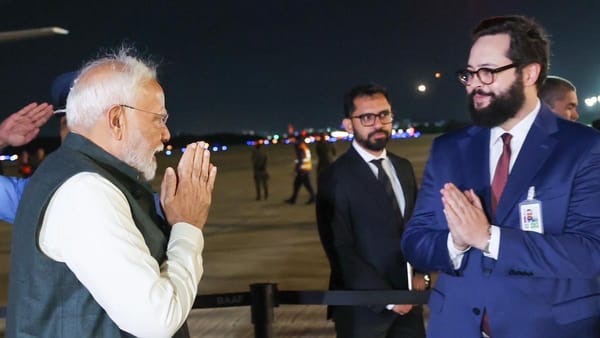Is the UK Truly India’s Friend? Unpacking a Colonial Legacy and Present-Day Discord

The diplomatic, economic, and historical relationship between India and the United Kingdom has long been layered with contradiction. While both nations officially term their relationship as a "Comprehensive Strategic Partnership," the legacy of colonialism, post-Brexit diplomacy, visa restrictions, and recurring parliamentary interventions into India's internal affairs continue to cast shadows on the alliance.
This article takes a deep dive into the historic, geopolitical, and present-day tensions between India and the United Kingdom — a relationship marked by economic ties but emotional distrust.
A Relationship Built on Exploitation
The root of Indian skepticism toward the UK lies in over 200 years of British colonial rule, which saw India reduced from one of the world’s largest economies to a struggling colony:
- The East India Company (1757–1858) looted Indian resources and consolidated British power using divide-and-rule policies.
- The Great Bengal Famine of 1943, which killed nearly 3 million people, was exacerbated by Churchill-era British policies — with Churchill himself blaming Indians for “breeding like rabbits.”
- Kohinoor Diamond, Tipu Sultan’s artifacts, and hundreds of other cultural and spiritual treasures remain in the UK, despite repeated Indian demands for repatriation.
These actions are widely considered historical thefts, not just by Indian historians but also by various global justice movements.
UK’s Recurrent Political Meddling
In modern times, India's concerns have expanded from historical grievances to active UK political behavior:
- The UK Parliament has repeatedly debated India’s internal issues, including the abrogation of Article 370 in Kashmir (2019) and the Citizenship Amendment Act (2020).
- British MPs have criticized India's handling of farmer protests, despite India's stance that these are domestic matters.
- In 2021, UK Labour Party members called for sanctions on Indian officials, which India perceived as neo-colonial interference.
A One-Sided Barrier?
While India and the UK have signed migration and mobility partnerships, discriminatory visa policies continue to spark anger:
- Indian students often face strict visa scrutiny, even though they are among the largest group of international students in the UK.
- The UK's points-based immigration system, introduced post-Brexit, remains tilted against Indian skilled workers.
- The 2023 UK-India Free Trade Agreement (FTA) negotiations stalled partly due to Britain's refusal to ease mobility access for Indian professionals.
Allegations and Double Standards
India has raised alarms over UK's tolerance of separatist movements, particularly:
- Khalistani groups openly operate in London, organizing anti-India protests and even attacking the Indian High Commission (March 2023).
- Indian officials allege the UK has failed to prosecute or curb radical groups advocating secession and violence in Punjab.
This has been viewed in New Delhi as a deliberate policy of appeasement toward diaspora vote banks and a lack of sensitivity to India’s sovereignty.
Trade Talks & Geopolitical Disconnect
While economic ties remain strong — bilateral trade crossed £38 billion in 2024 — political coldness continues:
- The UK has not officially supported India’s bid for a permanent seat on the UN Security Council, despite New Delhi’s expectations.
- British media, including the BBC, have often been accused of biased reporting on India, especially on sensitive matters like minority rights and religious tensions.
- A 2023 BBC documentary on Prime Minister Narendra Modi’s role during the 2002 Gujarat riots led to strong backlash in India, including raids on BBC offices by Indian tax authorities.
Not a “Natural Ally”
Unlike the United States or France, which align strategically with India's Indo-Pacific ambitions, the UK has been largely absent from key regional partnerships:
- India is part of the Quad (US, Japan, Australia, India) — a clear move toward the Indo-Pacific pivot where the UK plays a minimal role.
- The UK continues to remain closely aligned with Pakistan, providing financial aid and hosting Pakistani leaders with regular diplomatic access.
Growing Discontent
Across Indian civil society and digital platforms, the public sentiment has become increasingly critical:
- Indian netizens trend hashtags such as #BoycottBBC, #ReturnKohinoor, and #StopUKInterference.
- Political analysts in India argue the UK remains “India’s frenemy” — friendly in trade but adversarial in diplomacy.
- Indian diaspora leaders in the UK, including MPs of Indian origin, have begun questioning the double standards of British foreign policy.
A Strategic but Untrusting Relationship
While India and the UK maintain strong diplomatic formalities and economic dialogue, the undercurrent of mistrust remains unresolved. Until the UK acknowledges its colonial legacy, stops interfering in India's internal affairs, and reforms its diaspora appeasement and visa policies, the relationship will remain transactional rather than transformational.
India may trade with the UK, but it will never forget the weight of history, injustice, and perceived duplicity.
Sources:
- British Library Archives
- Ministry of External Affairs (India) Annual Reports
- UK Parliament Debate Archives
- BBC News, The Guardian, The Hindu, India Today, and Indian Express
- Human Rights Watch and Amnesty International Reports
- Bilateral Trade Statistics from UK Department of Business and Trade




